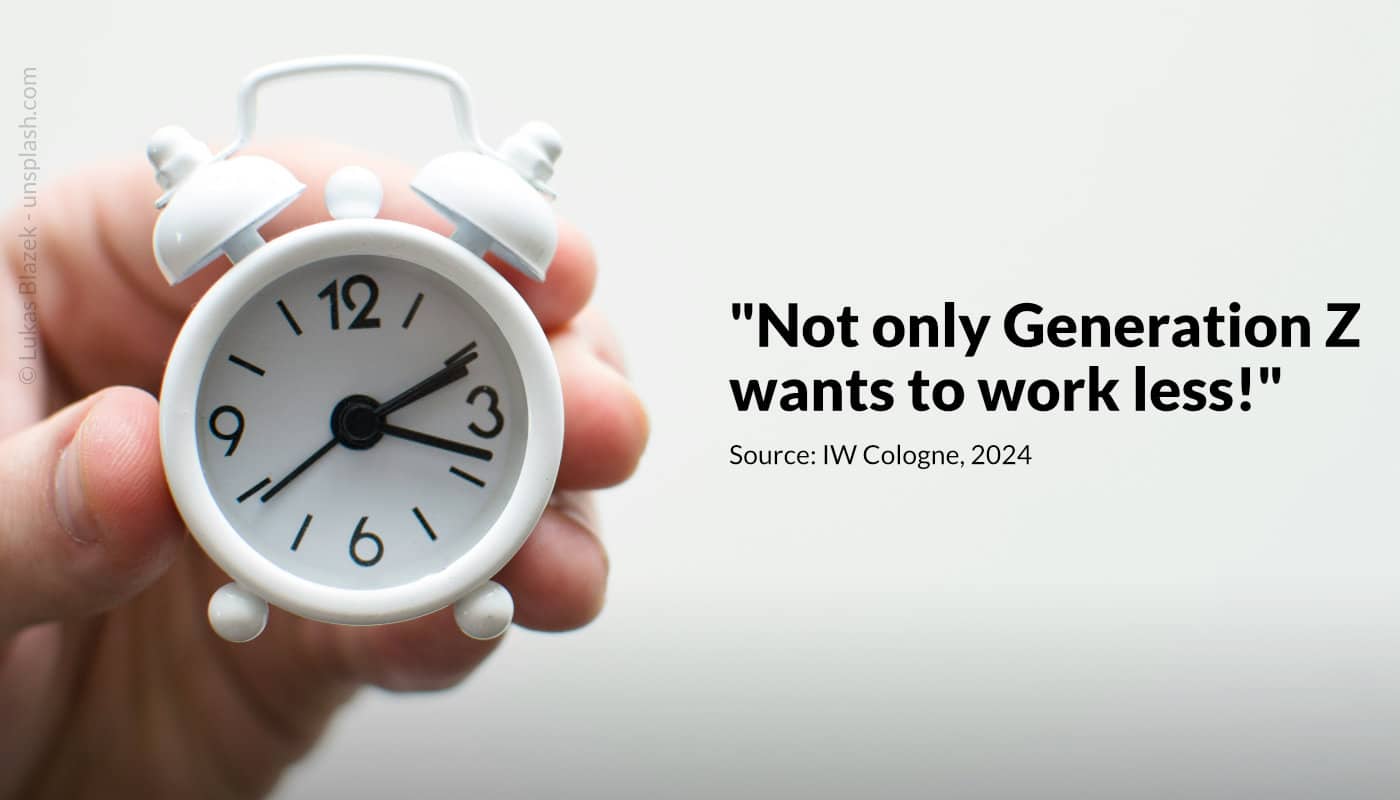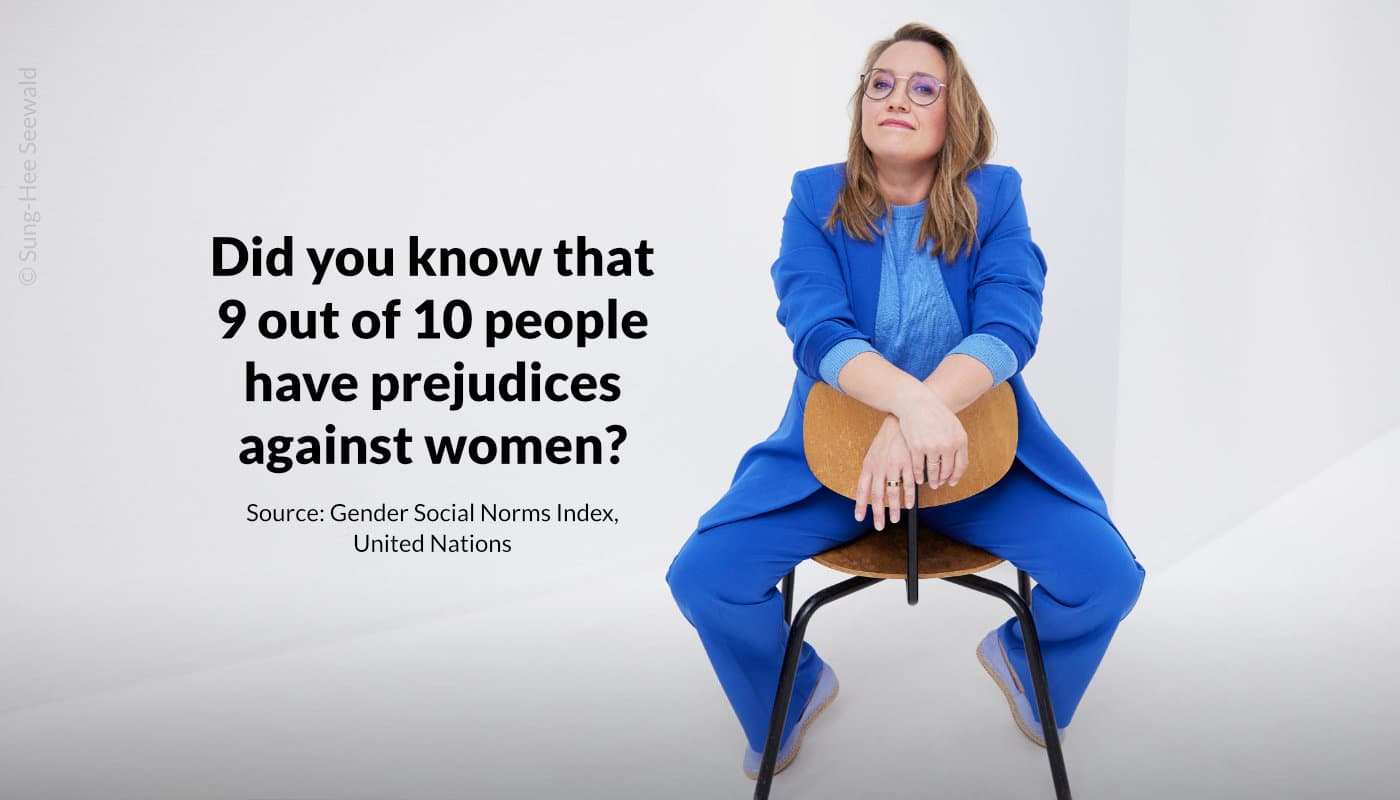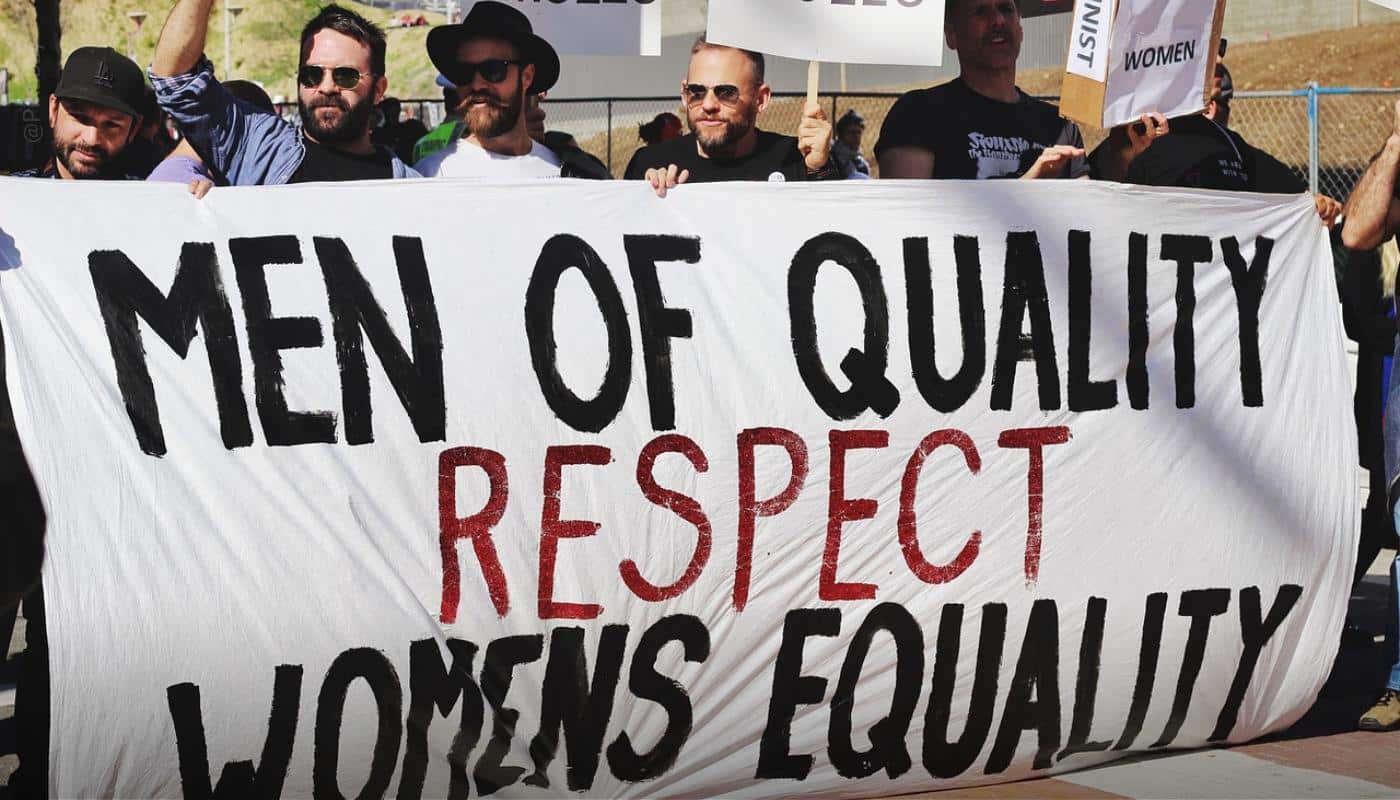The focus topic of this week’s herCAREER newsletter—with many informative contributions: mindset, dealing with challenges, and (self-)reflection.
A particular issue in this context that deeply concerns me is the steadily increasing compression of work.
The Service Association KVD writes: “According to a recent study, 52.8 percent of Germans feel exhausted. This represents an increase of 3.2 percent compared to the previous year. The main causes of this exhaustion are health complaints, the political situation, and workload. Additionally, 40.2 percent expect exhaustion to increase further in the future. To reduce work-related exhaustion, 40.7 percent of employees express a desire for ‘less meaningless work.’ What solutions could help address this crisis?”
The three main causes by percentage:
When it comes to workload as a cause, there are significant differences depending on the age and employment group.
Over 50s: Health issues play a larger role than workload.
Study leader Christina Guthier states: “Exhaustion is not a problem of individuals that they can resolve on their own. I see this as a structural issue that we can only address by massively changing the way we work and organize daily life.”
Business consultant Andreas Scheuermann adds: “Overall, the level of exhaustion is an indicator of the ongoing intensification of work. The conclusion can only be to rethink the workplace with people at the center. It’s no coincidence that we’re currently discussing the four-day workweek and the declining importance of work for younger generations.”
The WSI (Economic and Social Research Institute) of the Hans Böckler Foundation surveyed works councils on the issue of work intensification a few years ago and reported: “In the view of works councils, not only has the workload increased in recent years, but so have companies’ expectations of employee performance. Across industries, works councils observe greater complexity in work: multitasking, increased needs for cooperation and coordination due to greater customer orientation, and the simultaneous management of deadlines and projects.”
One of the primary reasons cited was insufficient staffing levels.
Recent discussions have focused on the record number of sick days due to illness last year. According to ZDF, as of August 2024, there were already as many cases of illness as in the entire previous year. Besides respiratory illnesses, psychological stress was a leading cause of—often long-term—sick leaves. Between 2014 and 2024, the number of sick days due to mental health issues increased by nearly half.
Last year, the German Economic Institute published the report “Working Time Preferences of Young Employees,” which showed a decline in preferred working hours across all age groups. Among those under 26, the desired working hours dropped by approximately 3 hours per week, for those aged 26–40 by around 2 hours per week, and for those over 40 by nearly 3 hours per week. Across all age groups, employees are seeking a reduction in working hours.
My intuitive reaction: Could this also be understood as a form of self-preservation?
Recommended Resources:
I suggest listening to one of our podcasts with Maren Urner: “Podcast: Alles beginnt im Kopf – Mit dem Denken von morgen die Probleme von heute lösen” Podcast (available only in German language)
I’d also like to highlight Martha A. Dudzinski from the SWANS Initiative. She is the author of the book “Consistently 60 Percent” (described as “a productivity guide in disguise, it’s a critique of the twin evils of patriarchy and capitalism”).
In her conversation with herCAREER, she says: “The most important thing is to be kinder to ourselves. Learn to manage your energy rather than just your time.” (Interview available only in German language)

Posted by Natascha Hoffner, Founder & CEO of herCAREER | Recipient of the FTAfelicitas Award from Femtec.Alumnae e.V. | LinkedIn Top Voice 2020 | Editor of the “Women of the Year” books published by Callwey Verlag#
published on LinkedIn on 15.01.2025
References:
- https://www.service-verband.de/blog/studie-menschen-sind-erschoepft-und-beklagen-sinnlose-arbeit-was-kann-man-tun
- https://www.iwkoeln.de/studien/andrea-hammermann-holger-schaefer-arbeitszeitwuensche-von-jungen-beschaeftigten.html
- https://www.zdf.de/nachrichten/wirtschaft/krankheitsfall-fehlzeiten-beschaeftigte-aok-100.html
- https://www.econstor.eu/bitstream/10419/224241/1/wsi-pb33.pdf












